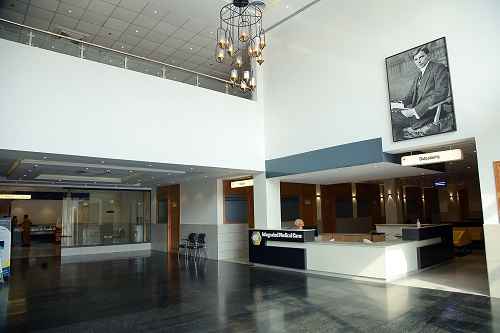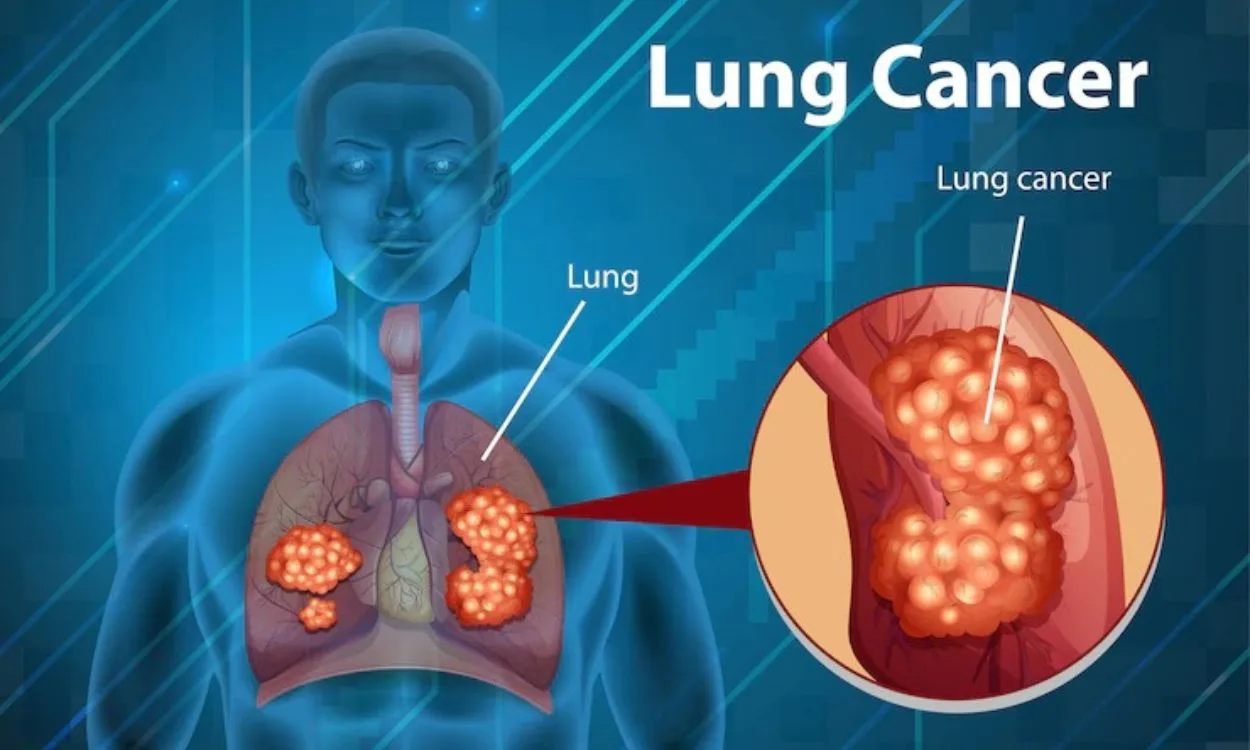- 07-Mar-24
Uncontrolled cell growth in the lung's tissues is a hallmark of lung cancer. It is one of the most common types of cancer worldwide and is a leading cause of cancer-related deaths. There are two main types of lung cancer: non-small cell lung cancer (NSCLC) and small cell lung cancer (SCLC).
NSCLC is the most common type, accounting for about 85% of all cases, while SCLC accounts for the remaining 15%. Risk factors for developing lung cancer include smoking (both active and passive), exposure to radon gas, asbestos, or other carcinogens, a family history of lung cancer, and certain genetic mutations.
Lung Cancer Symptoms
The symptoms of lung cancer can vary depending on the type of lung cancer and its stage. Some common symptoms include:
- Persistent cough: A persistent cough that might worsen with time. It may produce phlegm or be dry.
- Coughing up blood: Also known as hemoptysis, this is when you cough up blood or blood-stained mucus. It can range from a small amount to large amounts of blood.
- Chest pain: Chest pain that may be sharp, dull, or aching, and can be felt anywhere in the chest. It may worsen with deep breathing, coughing, or laughing.
- Hoarseness: Changes in the voice, such as hoarseness or raspiness, that persist without any apparent reason.
- Shortness of breath: Difficulty breathing or feeling breathless, especially with exertion or at rest.
- Wheezing: A high-pitched whistling sound when breathing, which can be a sign of narrowed airways.
- Unexplained weight loss: Losing weight without trying, which can be a result of cancer cells using energy or changes in metabolism.
- Fatigue: Feeling unusually tired or weak, which can be persistent and not relieved by rest.
These symptoms can vary in severity and may not all occur in every individual with lung cancer. It's important to consult a healthcare professional for proper diagnosis and treatment if you experience any of these symptoms, especially if they are persistent or worsening over time.
Lung Cancer Causes
The primary cause of lung cancer is smoking, both active and passive (inhaling secondhand smoke). Other causes and risk factors include:
- Exposure to Radon Gas: Radon is a radioactive gas that occurs naturally and can seep into homes and buildings. Long-term high radon exposure can increase the risk of lung cancer.
- Exposure to Carcinogens: Such as asbestos, arsenic, chromium, nickel, and some organic chemicals, which are found in certain workplaces or environments.
- Family History: Having a close relative, such as a parent or sibling, with lung cancer can increase your risk.
- Previous Radiation Therapy: For other cancers, especially if the chest area was treated.
- Air Pollution: Long-term exposure to high levels of air pollution, especially in urban areas, may increase the risk of lung cancer.
- Personal History of Lung Disease: Such as chronic obstructive pulmonary disease (COPD) or tuberculosis (TB), which can damage the lungs and increase susceptibility to lung cancer.
- Genetic Factors: Certain genetic mutations or inherited conditions can increase the risk of lung cancer.
It's important to note that not everyone with these risk factors will develop lung cancer, and some people with lung cancer may not have any known risk factors. Understanding these risk factors can help in taking preventive measures and adopting a healthier lifestyle to reduce the risk of developing lung cancer.
Integrated Medical Care Hospital (IMC Hospital):
The multi-specialty IMC Hospital was founded in collaboration with DHA Lahore with the goal of revolutionising healthcare and introducing the concept of completely integrated treatment and services. You can locate the Best Infertility Specialist right here. Visit Integrated Medical Care Hospital (IMC Hospital) today and make an appointment.

 Map
Map










